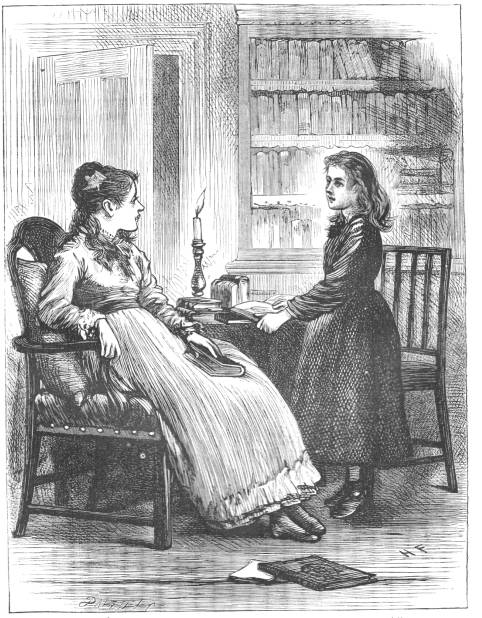A college friend, currently working on her PhD in English, wrote this insightful follow-up to my post applying Charles Dickens’ Hard Times to today’s GOP. I could have mentioned in my own article that perhaps the most egregious act by these Republicans is their attempt to cut $40 billion out of the food stamp program, which as Mike Tomasky of The Daily Beast points out is not to save money but to punish people who are associated with the president–who, as many in the GOP see it, are the 47%, takers dependent on federal largesse, welfare cheats disincentivized from looking for work, poor people who are somehow responsible for their condition. In point of fact, as Tomasky notes, 45% of food stamp recipients are children, 41% live in households where at least one person works, 900,000 are veterans, and many of the others are old or disabled. Betsy’s article shows how politicians like House Majority Leader Eric Cantor are able to rationalize such cuts by turning to cold abstractions. (Added note: I should have noted that $5 billion in food stamp cuts go into effect Friday, knocking out 21 meals in the monthly allotment for recipients.)
There was a piece of news yesterday that makes Betsy’s post even more relevant: both the Dow and the S&P reached all time record highs at 15,680.35 and 1771.95 respectively.
By Betsy Barnum, Graduate Instructor, University of North Dakota
Since the topic of Dickens and his relevance for understanding our times has come up, and especially one of my favorite of his novels, Hard Times (which also describes our times, increasingly, for so many), I want to call attention to the sweet character of Sissy Jupe and the light that her timid, unassuming wisdom sheds on the discourse of our current recession and whether we’re coming out of it—or not.
Sissy, a circus girl who becomes a student of Mr. McChoakumchild (surely one of Dickens’s best, most undisguised descriptive names), has trouble understanding the economic and statistical concepts he teaches. In a conversation with the young woman she lives with, Louisa, Sissy recounts one of her “mistakes.”
Trying to teach Sissy about National Prosperity, Mr. McChoakumchild likens the clasroom to a nation:
And in this nation there are 50 millions of money. Isn’t this a prosperous nation? Girl number twenty, isn’t this a prosperous nation, and an’t you in a thriving state?
Sissy’s answer, as she tells Louisa, is that
I couldn’t know whether it was a prosperous nation or not, and whether I was in a thriving state or not, unless I knew who had got the money, and whether any of it was mine. But that had nothing to do with it. It was not in the figures at all.
I think of this innocently simple but acute insight of Sissy’s every time the news media report that the recession we have been in since 2008 is easing because GDP is growing and the stock market is going up. Yes, there’s more money in the economy, but who does it belong to? What the figures say is that the vast majority of income growth in the US in recent years–93% in 2010, according to a report by an economist at Berkeley–has gone to the wealthiest 1% of the population. These are the figures that, for Mr. McChoakumchild and for the U.S. news media and political analysts, have “nothing to do with it.” There’s more money, therefore the nation is more prosperous and the recession is ending.
Sissy Jupe knows otherwise—and so do American who have lost their jobs, lost their homes, and sunk deeper in debt while the National Prosperity grew by millions of money.


